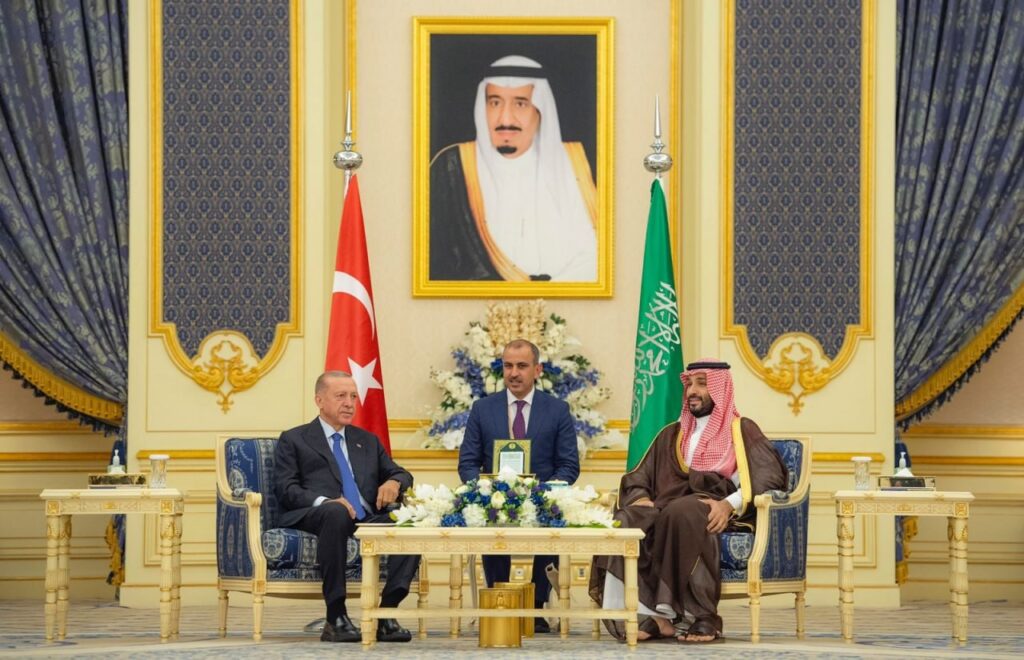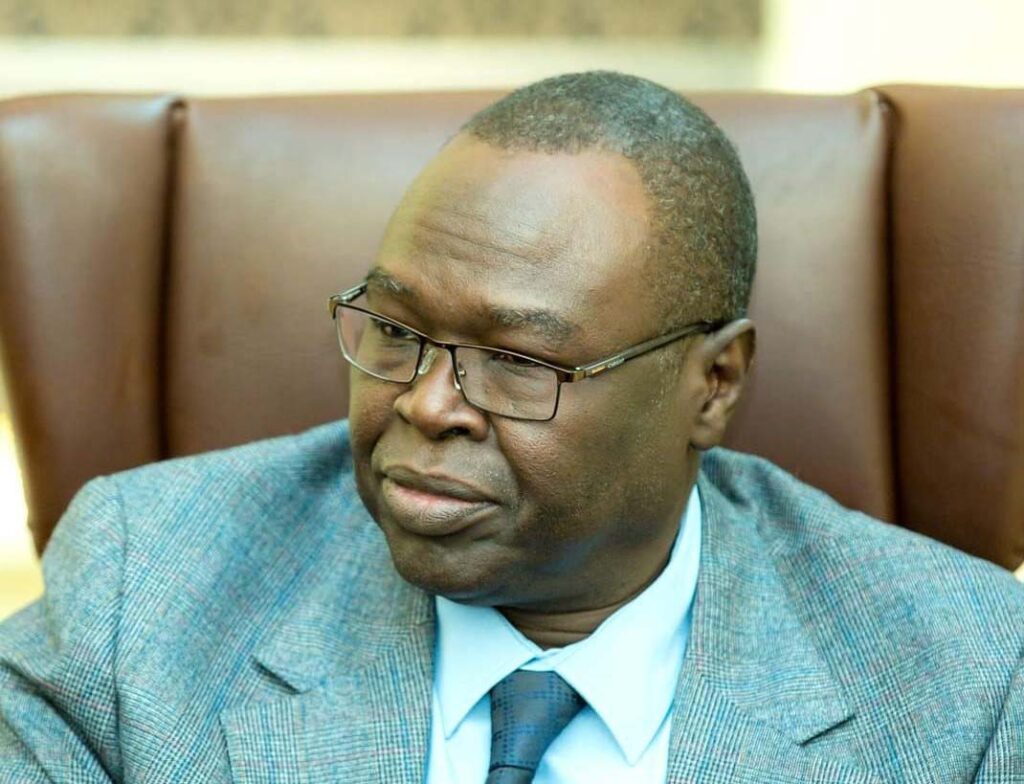Siddig Tawir: ‘Jeddah talks last chance to stop the war in Sudan’

Meeting between Saudi Crown Prince Mohamed bin Salman and Turkish President Recep Erdogan on July 19 (Photo: Saudi FA Ministry)
PORT SUDAN –
The current talks between the warring Sudan Armed Forces (SAF) and the Rapid Support Forces (RSF) in Jeddah, Saudi Arabia, are the last chance to stop the war, says Professor Siddig Tawir. He warns for linking talks on the cessations of hostilities with politics. ‘Both the army and the RSF have nothing to do with any political arrangements in the future.’
In an interview with Radio Dabanga yesterday, the leading member of Sudan’s Socialist Arab Ba’ath Party and former member of the Sovereignty Council spoke about “an atmosphere of optimism about the success of the negotiations between the two parties” which began in Jeddah earlier this week.
“Though nothing has been revealed about the negotiation process so far, recent statements from the leadership of both the army and the RSF support any effort to peacefully resolve their conflict,” he said.
“Both parties have acknowledged that the option of military confrontation has failed. They have come to realise that continued fighting will lead to the collapse of the country and threaten the security situation in the region.”
According to Tawir, the statements of the SAF deputy commander-in-chief Shamseldin Kabbashi a week ago, about the army command being ready to accept any serious initiative to stop the war, “have opened a window of hope, in particular after the SAF expressed its reluctance to respond positively to the IGAD platform and the African Union”.
The resumed negotiations in Jeddah were preceded by “major regional actions”, the latest of which was the Saudi-Turkish summit in Jeddah and the summit of Sudan’s neighbouring countries in Cairo.
“In particular the joint Turkish-Saudi position on ending the war, outside the African and Arab frameworks, may be helpful to the Saudi-American negotiators,” the politician said, and expressed his hope that “both parties will abide by their statements of commitment to move towards a peaceful solution”.
Political agenda
Tawir criticised RSF plans to form a committee to communicate with political forces and rebel movements. “This contradicts the function of the RSF as a quasi-regular force that was established in known circumstances under the former regime.”
He wondered whether the RSF is a paramilitary force or an organization with a political project. “Statements by the RSF Command on political reasons for the war are a contradiction in terms,” he stated. “On the one hand, the RSF adhere to their right as a regular military force to put conditions for its merge into a unified army, and at the same time they adopt political projects.”

Islamists
Regarding statements issued by the Sudanese Ministry of Foreign Affairs on the negotiations between the army and the RSF, Tawir said that “they can be considered as practically worthless, as there is no government in the country since the coup d’état staged by the army and the RSF together on October 25 [2021]”.
The ministry earlier said in a press statement that the Sudanese government conditions the success of the Jeddah negotiations on the evacuation of RSF troops from the homes in Khartoum they are occupying and the release of prisoners.
“The FA Ministry is run by members of the dissolved National Congress Party (NCP) who support the war,” Tawir explained. “These elements of the former Al Bashir regime were allowed to return to their former positions following the coup.”
According to the politician, “the only statements on the Jeddah talks that are reliable are issued by the army command and the RSF”.
He further refused to link talks on a permanent cessation of hostilities to new political arrangements. “The two warring parties are not entitled to do so because they form the military component of the country. They jointly carried out the 2021 coup before they differed and began fighting each other. Both the army and the RSF should not have anything to do with any political arrangements in the future.”
Kassala
On Wednesday, former officials of the Al Bashir regime, headed by Ahmed Haroun and Awad El Jaz who escaped from prison in Khartoum and are now in Kassala, called on all political parties to stand with the army.
Professor Tawir responded to the call by saying that the SAF command “should prevent any Islamist hardliners of the former regime from speaking on its behalf. “They are using the army to pass their political agenda. They are seeking opportunities to return to power on the back of a tank.”
Former rebel leader Yassir Arman said in a tweet yesterday that Kassala has become one of the centres of senior leaders of the former regime, headed by Awad El Jaz, Ahmed Haroun, and Haji Majid*.
* Awad Ahmed El Jaz is a stalwart of Al Bashir’s NCP. He was a close aide to Al Bashir and served as minister of the Cabinet, Energy, Mining, Industry and Finance. Following the ousting of Al Bashir in April 2019, he was arrested and charged with numerous cases of fraud. Ahmed Haroun (also spelled Harun) was also close to Al Bashir. As Minister of State for Interior Affairs between 2003-2005, he managed the Darfur Security Desk, which coordinated the janjaweed in the region. Haroun was charged with crimes against humanity and war crimes by the International Criminal court (ICC) in 2007. Islamist hardliner Haji Majid Suwar served as NCP Secretary of Political Mobilisation and Minister of Youth and Sports. Together with El Jaz, Haroun, and other Islamist hardliners, he managed to escape from Kober Prison in Khartoum North about 10 days after the SAF-RSF war broke out.











 and then
and then